The Republican Party’s once-crowded 2024 presidential primary field has suddenly shrunk to just a handful of viable candidates.
But a day after Sen. Tim Scott of South Carolina stunned many of his own staff by suspending his campaign, it’s unclear whether the GOP is any closer to coalescing behind a clear alternative to former President Donald Trump. Instead, the fight between Nikki Haley and Ron DeSantis for a distant second place appears to be intensifying. And some lower-tier candidates insist on battling for relevance, despite growing pressure to bow out of the race altogether.
Meanwhile, Trump’s team is cheering on the muddle for second place with Iowa’s Jan. 15 kickoff caucuses just two months away.
Still, there were new positive signs on Monday for Haley, Scott’s South Carolina rival, who had been rising in the Republican contest even before the senator’s sudden announcement.
Billionaire investor Stanley Druckenmillier, who had given money to Scott, pledged his support for Haley during a Monday interview as he spoke publicly about the 2024 race for the first time. He emphasized the need for the GOP to coalesce behind the former United Nations ambassador before primary voting begins.
“Now I’m hoping the field clears and it’s Nikki Haley one-on-one with the former president,” Druckenmillier told The Associated Press. “As long as the field is cleared before the actual primaries, I think that’s what’s important.”
But DeSantis is showing no signs of going away as he narrows his focus on Iowa’s leadoff caucuses.
The Florida governor’s spokesperson, Andrew Romeo, says he has a new opportunity in Iowa with Scott and former Vice President Mike Pence out of the race. He pointed to Iowa’s influential group of religious conservatives who have warmed to DeSantis’ strong opposition to abortion and LGBTQ rights as part of his aggressive “war on woke.”
Just last week, DeSantis scored the biggest endorsement of the 2024 campaign by nabbing the backing of Iowa Gov. Kim Reynolds, who promises to lend the Florida governor her folksy charm — and her statewide political machine.
“Tim Scott and Mike Pence were surging resources in Iowa, looking to attract evangelical supporters, and unlike Nikki Haley, Ron DeSantis is making headway with those voters,” Romeo said. “In the coming weeks, these voters will see that Nikki Haley’s record and values don’t match her rhetoric.”
The prominence of the Haley-DeSantis feud underscores just how quickly the 2024 Republican field has winnowed compared to the last time Trump was on the ballot.
At this time in the 2016 primary season, 13 Republican presidential candidates were still competing on the debate stage across two nights. The 2024 primary season opened with eight Republicans in the opening debate this August, while no more than four are expected to qualify for next month’s debate in Alabama: Haley, DeSantis, conservative entrepreneur Vivek Ramaswamy and former New Jersey Gov. Christie.
North Dakota Gov. Doug Burgum and former Arkansas Gov. Asa Hutchinson failed to qualify for the the last debate, although they’re still in the race. Pence, who would not have qualified for the last debate, suspended his campaign last month facing a similar dilemma.
Trump’s team is cheering on the feud between Haley and DeSantis, who are largely focused on tearing down each other, while the former president remains the overwhelming GOP front-runner.
Privately, Trump’s allies believe that Haley will see the biggest short-term polling bump as a result of Scott’s departure. But they also believe that Trump, who has a substantial lead, is likely to extend his already huge advantage.
The Trump campaign issued a statement on Monday highlighting Haley’s plans to invest $10 million in an advertising campaign across Iowa and New Hampshire beginning in early December, which is designed to give her an advantage over DeSantis.
“In a big blow to Ron DeSanctimonious, a new report notes that Nikki ‘Birdbrain’ Haley will spend $10 million in advertising skewering DeSanctus in Iowa and New Hampshire,” the Trump campaign said, pointing to Haley’s recent rise in the polls and using the former president’s derisive monikers for the two. “She is gaining momentum while he is dropping like a rock.”
Meanwhile, some were still grappling with Scott’s sudden decision to suspend his presidential bid.
The South Carolina senator, the only African American remaining in the GOP race, surprised most of his staff when he announced his decision during a Sunday night interview on Fox News. After the public announcement, Scott explained his rationale further during a private all-staff call, according to a senior staffer who spoke with the AP on the condition of anonymity to discuss the private conversation. The staffer said the campaign sensed that primary voters were reluctant to support someone other than Trump.
In an email to supporters on Monday afternoon, Scott said he felt the message is unambiguous for him.
“I think the voters, who are the most remarkable people on the planet, have been clear in what they are telling me: ‘not now, Tim.’ I do not think they are saying ‘no.’ But I do think they are saying ‘not now,’” he wrote.
Scott entered the 2024 campaign to much anticipation — especially in Iowa — as a close friend to Iowa Sen. Joni Ernst and a devoted evangelical Christian.
At times, his presidential ambitions looked promising.
Scott’s campaign and a super PAC supporting him spent a combined $24 million in advertising, mostly in Iowa. During his Iowa trips, Scott made his Christian faith and biblical fluency central to his candidacy and often met with evangelical ministers.
Iowa GOP activists frequently named him among the prospects they were considering throughout the summer. They cited his upbeat style and hopeful message, an implied contrast with the grievance-driven messaging from Trump.
Despite the big Iowa focus and positive message, however, he struggled to break through. And his modest share of support in late-summer Iowa polls shrunk by late fall as DeSantis and Haley appeared more viable.
Republican bundler Eric Levine, a Trump critic who raised more than $100,000 for Scott’s campaign in recent weeks, praised the South Carolina senator’s willingness to step aside “for the good of the country.”
“It is an act I think others should emulate now. We should start rallying behind a single candidate,” Levine said, declaring his support for Haley. “It’s Nikki time.”
Still, Devin O’Malley, a Republican communications strategist who had advised Pence’s campaign, warned that coalescing behind a Trump alternative is only the first challenge for Republicans wishing to defeat Trump.
He warned that the winnowing process could also lead to a more vitriolic confrontation with the former president.
“The sooner that everyone else gets out, the sooner that Trump’s ire is drawn on the one candidate. He’s just going to wear people down and out,” O’Malley said. “That urge to respond to him and to compete with the insults and attacks is overwhelming. I don’t think that Haley and DeSantis are conditioned to that.”
(AP)

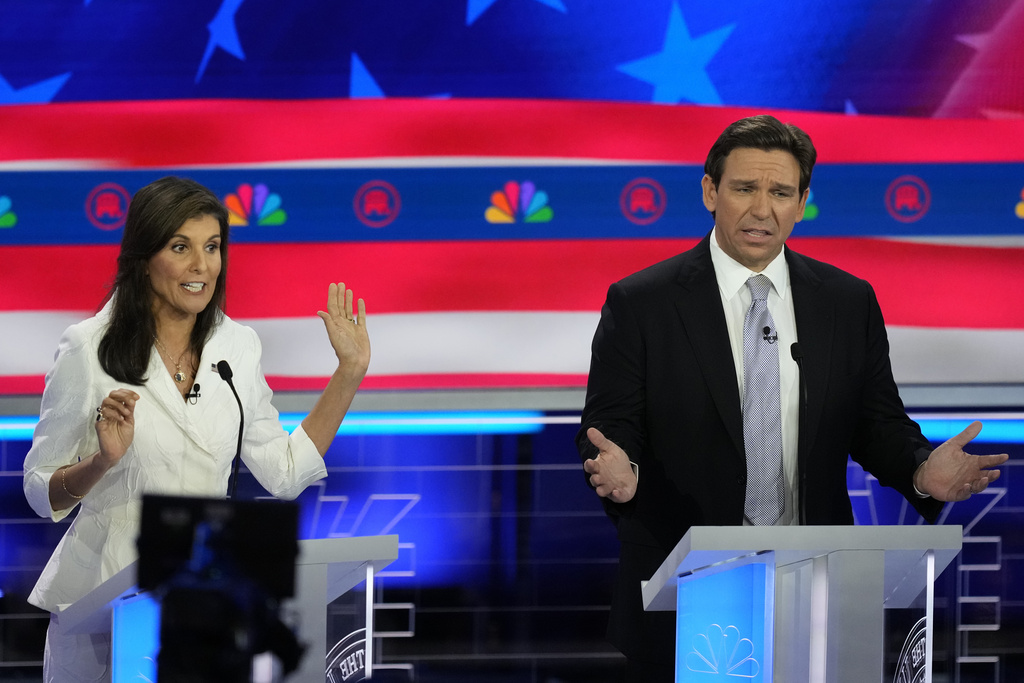




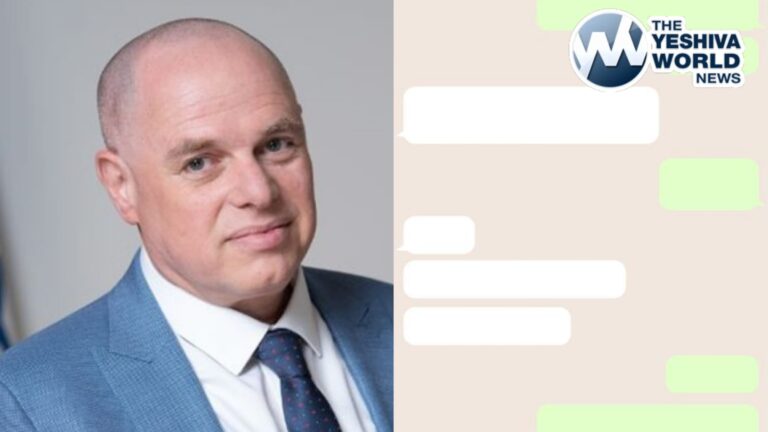
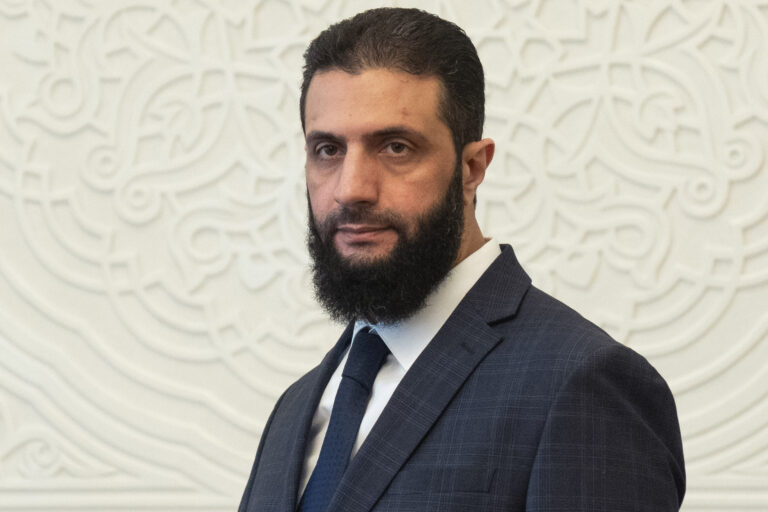
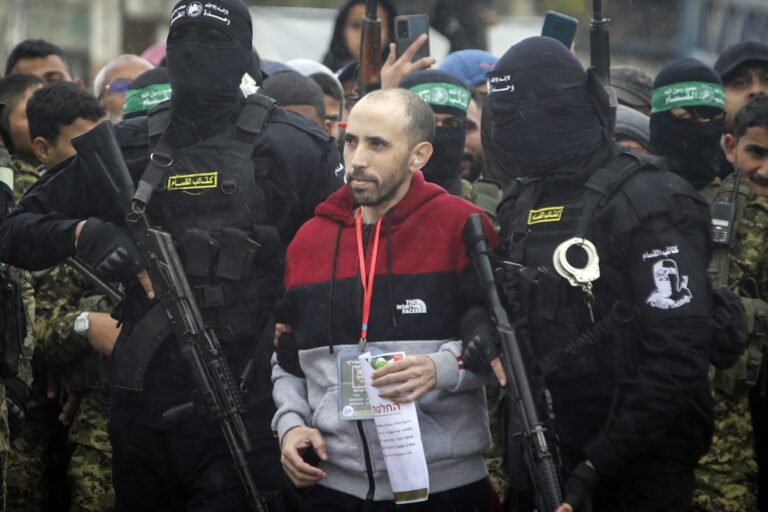
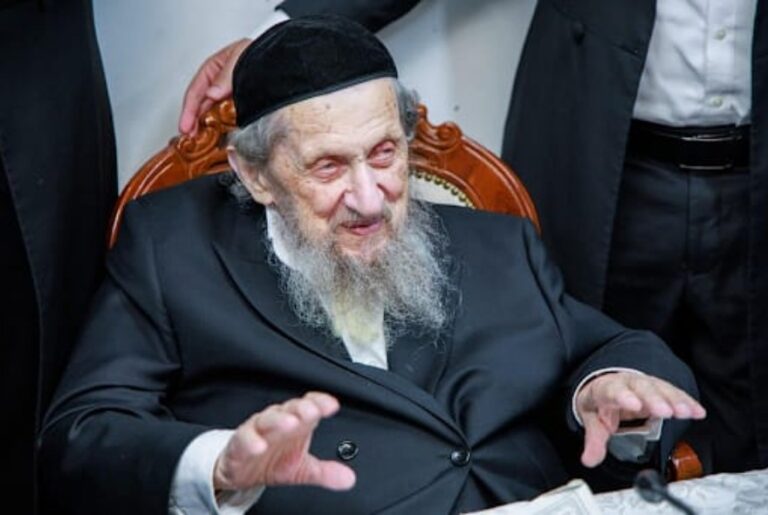


2 Responses
If the field is shrinking, it actually means that they have a better chance of defeating him. The more choices there are for the non-Trump voters, the more their vote will split in different directions.
The Republicans are, for the most part divided into two camps: pro-Trump and anti-Trump. Pro-Trump will vote for him through fire and water; anti-Trump won’t vote for him come H*ll or high water.
If the non-Trump candidates are down to one or two strong choices, then they actually stand a chance of getting the nomination. Any more than that, he’ll have it in the bag easily.
Whoever hopes to stay the distance already knows that they’ll have to put up with his intensely colorful insults and wisecracks; they’re not stupid.
No Republican is electable without support from Trump’s MAGA base, even if Trump himself would face challenges. Therefore the trick is for a candidate (DeSantis or Halley) is to convince Trump to drop out and endorse him or her. The advantage for Trump is the Republicans will then have a fairly united party going into the election, and can be statute protect him from the constant legal harassment (e.g. banning selective prosecution as well as banning a government from used convoluted civil actions to get around the ban on bills of attainder).